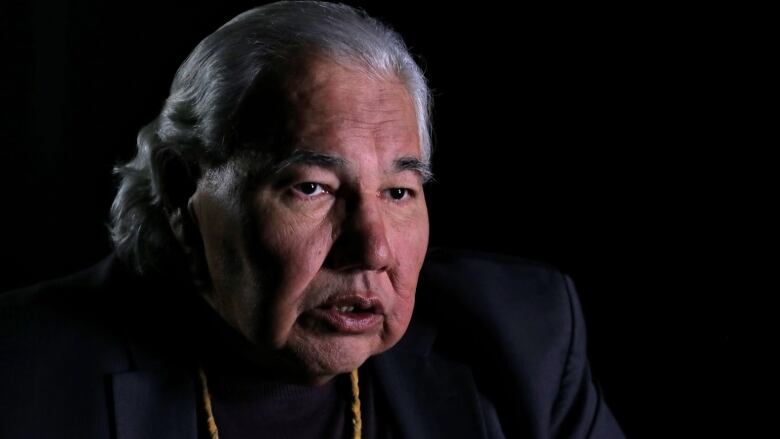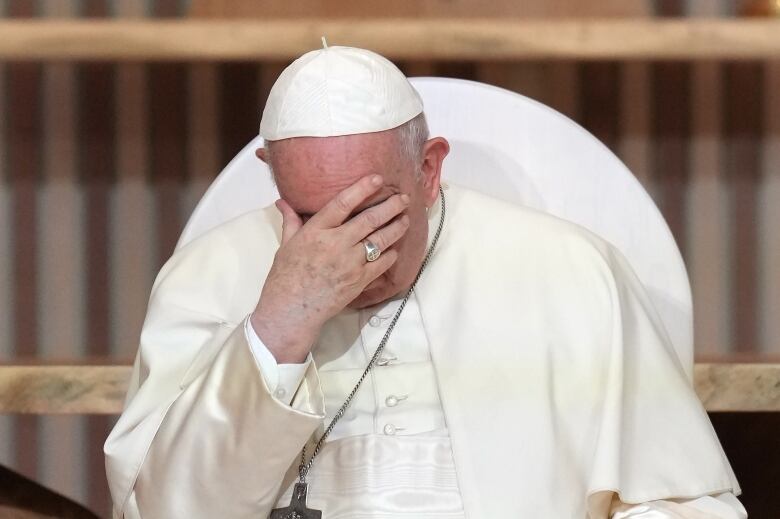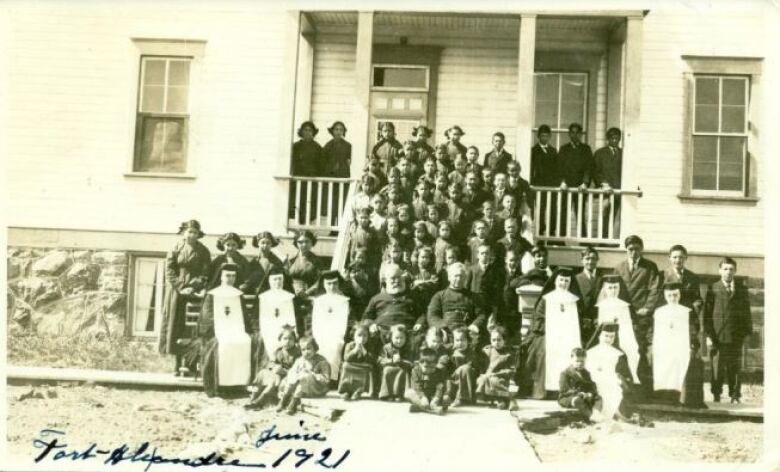Pope's apology doesn't acknowledge church's role as 'co-author' of dark chapter: Murray Sinclair
Apology fails to recognize 'full role of the church in the residential school system,' former senator says

The former Manitoba senator who chairedthe Truth and Reconciliation Commission of Canada says there's a "deep hole" in the apology issued by Pope Francis Mondayfor the role Catholics played in Canada's residential school system.
Murray Sinclair saysthe historic apology, although meaningful to many residential school survivors and their families, fell short of Call to Action 58 in the final report.
It specifically called on the Pope to issue an apology "for the Roman Catholic Church's role in the spiritual, cultural, emotional, physical, and sexual abuse of First Nations, Inuit, and Mtis children in Catholic-run residential schools."
In a written statement Tuesday, Sinclair said the intent was that survivors would not only hear remorse, "but an acceptance of responsibility for what they were put through at the hands of the church and other institutions."
While he called it a "historic apology," he said the Pope's statement "has left a deep hole in the acknowledgement of the full role of the church in the residential school system, by placing blame on individual members of the church."
Pope Francis delivered the apology Mondayin Albertaat the site of the former Ermineskin residential school, one of the largest in Canada, as he started what hecalled his "penitential pilgrimage."

"I ask forgiveness, in particular, for the ways in which many members of the church and of religious communities co-operated, not least through their indifference, in projects of cultural destruction and forced assimilation promoted by the governments of that time, which culminated in the system of residential schools," he said.
Sinclair said it's important to highlight that the Catholic Church was not just an agent of the state, but"a lead co-author of the darkest chapters in the history of the land."
Sinclair says Catholic leaders who were driven by the Doctrine of Discoverya 15th-century papal edict that justifiedcolonial expansion by allowing Europeans to claim Indigenous lands as their ownaswell as other church beliefs and policies enabled the government of Canada, and pushed it further in its work to commit what the TRCcalled the cultural genocidecarried out on Indigenous people in Canada.
That was often "not just a collaboration, but an instigation," he said.
"Thereare clear examples in our history where the church called for the government of Canada to be more aggressive and bold in its work to destroy Indigenous culture, traditional practices and beliefs," Sinclair's statement said.
"It was more than the work of a few bad actors this was a concerted institutional effort to remove children from their families and cultures, all in the name of Christian supremacy."
Time for action
Sinclair says reconciliation requires action, andthe Catholic Church must work to assist in restoring culture, beliefs and traditions destroyed through assimilation.
"For the children and descendants of survivors, it is not enough that you have stopped abusing them," he said. Rather, the church must help them recover, and "as well as commit to never doing this again."

The Pope will continue his pilgrimage throughout the week to meet withFirst Nations, Mtisand Inuit survivors in Quebec and Nunavut. Sinclair hopes the pontiffwill take his words to heart.
"There is a better path that thechurch and all Canadians can indeed follow: taking responsibility for past actions and resolving to do better on this journey of reconciliation."
Support is available for anyone affected by their experience at residential schools or by the latest reports.
A national Indian Residential School Crisis Line has been set up to provide support for former students and those affected. People can access emotional and crisis referral services by calling the 24-hour national crisis line: 1-866-925-4419.
Mental health counselling and crisis support is also available 24 hours a day, seven days a week through the Hope for Wellness hotline at 1-855-242-3310 or by online chat atwww.hopeforwellness.ca.












_(720p).jpg)


 OFFICIAL HD MUSIC VIDEO.jpg)
.jpg)



























































































